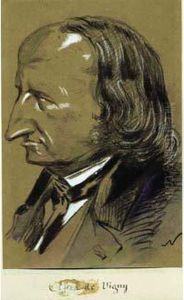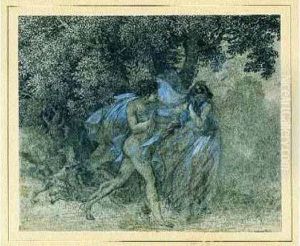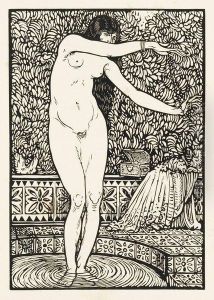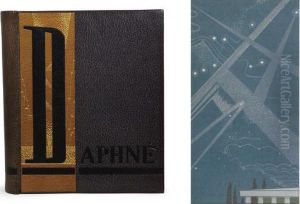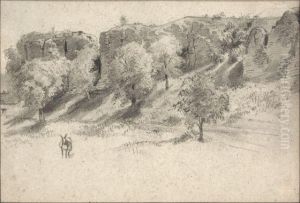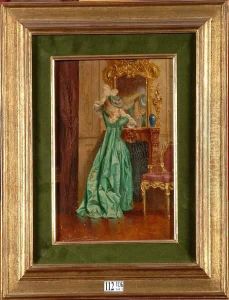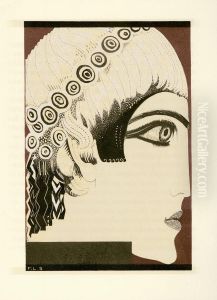Alfred De Vigny Paintings
Alfred Victor, Comte de Vigny, was a French poet, playwright, and novelist who was born on March 27, 1797, in Loches, a small town in the Touraine region of France. He was a major figure in the French Romantic movement and is best known for his poetry and his historical novels. Vigny hailed from an aristocratic family that had fallen on hard times, which influenced his works with themes of dignity in the face of adversity and the challenges of upholding noble ideals in a changing world.
His military career began in 1814, and the experiences he gained from his service greatly influenced his writing. Vigny's literary career began with the publication of his first collection of poems, 'Poèmes' in 1822, followed by 'Poèmes antiques et modernes' in 1826. His works often reflected his disillusionment with the realities of his time, contrasting the nobility of the soul with the pettiness of society. His best-known poem, 'Moïse', is exemplary of his contemplative and philosophical style.
Beyond poetry, Vigny made significant contributions to the genre of the historical novel with works such as 'Cinq-Mars' (1826), which was inspired by the life of the 17th-century French noble Henri Coiffier de Ruzé, Marquis de Cinq-Mars. His novels explored the tension between individual aspirations and societal constraints, and they often portrayed protagonists with stoic endurance in the face of fate.
De Vigny's later life was marked by seclusion and a retreat from public life. He became increasingly pessimistic and his later works, such as the play 'Chatterton' (1835), reflected his belief in the tragic nature of the life of artists and their unappreciated genius. This play is often regarded as an important precursor to the symbolist and modernist movements that would emerge later in the 19th century.
Alfred de Vigny passed away on September 17, 1863, in Paris. Despite his withdrawal from the public eye, his works have had a lasting impact on French literature, and he is remembered as one of the key figures in the Romantic literary tradition. His writings continue to be studied for their rich exploration of the human spirit and their insightful critiques of society.
